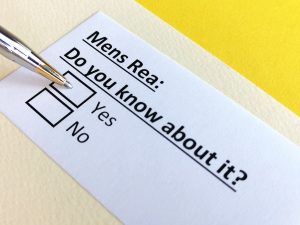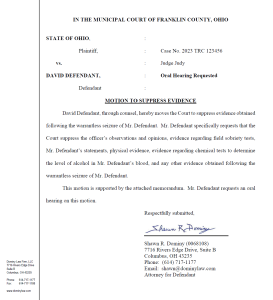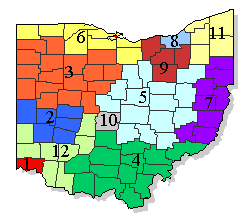 After a domestic dispute, an Ohio woman intentionally hit a man with her car and was charged with Aggravated Vehicular Assault. According to a recent story by WHOTV7, the woman drove her SUV over a sidewalk and into a yard to hit the man. That does sound intentional. When it comes to vehicular crimes in Ohio, is intent necessary?
After a domestic dispute, an Ohio woman intentionally hit a man with her car and was charged with Aggravated Vehicular Assault. According to a recent story by WHOTV7, the woman drove her SUV over a sidewalk and into a yard to hit the man. That does sound intentional. When it comes to vehicular crimes in Ohio, is intent necessary?
Articles Posted in DUI/OVI Constitutional issues
Inventory Searches and DUI/OVI in Ohio
 Following a DUI arrest (called ‘OVI’ in Ohio), it is common for an officer to search the suspect’s vehicle before having the vehicle towed. This ‘inventory search’ is an exception to the general requirement of a search warrant. For an inventory search to be valid, it must be done in accordance with the policy of the law enforcement agency. A recent case decided by the Ohio Supreme Court addressed what evidence is necessary to prove the search complied with the law enforcement agency’s policy. Continue Reading
Following a DUI arrest (called ‘OVI’ in Ohio), it is common for an officer to search the suspect’s vehicle before having the vehicle towed. This ‘inventory search’ is an exception to the general requirement of a search warrant. For an inventory search to be valid, it must be done in accordance with the policy of the law enforcement agency. A recent case decided by the Ohio Supreme Court addressed what evidence is necessary to prove the search complied with the law enforcement agency’s policy. Continue Reading
Miranda Violations Lead to New Trial in DUI Murder Case
 When a suspect is in the custody of a law enforcement officer, the officer must provide Miranda warnings before questioning the suspect. If the officer does not give sufficient warnings, the suspect’s statements made in response to questioning cannot be used at trial. In a recent DUI Murder case in California, Miranda violations resulted in an appeals court ordering a new trial.
When a suspect is in the custody of a law enforcement officer, the officer must provide Miranda warnings before questioning the suspect. If the officer does not give sufficient warnings, the suspect’s statements made in response to questioning cannot be used at trial. In a recent DUI Murder case in California, Miranda violations resulted in an appeals court ordering a new trial.
Defendant’s Medical Records Cannot Be Subpoenaed for Ohio DUI/OVI Cases
 As Dominy Law Firm attorney Bryan Hawkins was preparing to litigate this issue in Franklin County, Ohio, an appeals court settled it. The issue is whether, in a DUI case (called ‘OVI’ in Ohio), a law enforcement officer can obtain the medical records of a suspect with a subpoena and without a search warrant. In the case of State v. Rogers, the Tenth District Court of Appeals held law enforcement’s procurement of an OVI suspect’s medical records without a search warrant violates the suspect’s Fourth Amendment right to be free from unreasonable searches and seizures.
As Dominy Law Firm attorney Bryan Hawkins was preparing to litigate this issue in Franklin County, Ohio, an appeals court settled it. The issue is whether, in a DUI case (called ‘OVI’ in Ohio), a law enforcement officer can obtain the medical records of a suspect with a subpoena and without a search warrant. In the case of State v. Rogers, the Tenth District Court of Appeals held law enforcement’s procurement of an OVI suspect’s medical records without a search warrant violates the suspect’s Fourth Amendment right to be free from unreasonable searches and seizures.
Motions To Suppress Evidence in Ohio DUI / OVI Cases
 I recently came across this article in an Ohio newspaper: Judge Denies Motion to Suppress Evidence. What does that mean in a DUI case (called ‘OVI’ in Ohio)? When a judge orders that evidence is suppressed, the evidence is excluded from trial. That means, even though the evidence existed, the jury does not hear about it. The two general bases for suppressing evidence are: (1) violations of the defendant’s Constitutional rights; and (2) the government’s failure to comply with statutory (legislative) law.
I recently came across this article in an Ohio newspaper: Judge Denies Motion to Suppress Evidence. What does that mean in a DUI case (called ‘OVI’ in Ohio)? When a judge orders that evidence is suppressed, the evidence is excluded from trial. That means, even though the evidence existed, the jury does not hear about it. The two general bases for suppressing evidence are: (1) violations of the defendant’s Constitutional rights; and (2) the government’s failure to comply with statutory (legislative) law.
Ohio Supreme Court: Forfeiture of $31,000 Vehicle for DUI/OVI Not Excessive
 Back in 1791, when the 8th Constitutional Amendment was ratified, the Framers of the Constitution decided there should be limits on financial sanctions for criminal behavior. Accordingly, the 8th Amendment prohibits ‘excessive fines’. Courts have interpreted the Constitutional prohibition of excessive fines to apply to forfeiture of property in criminal cases. The Ohio Supreme Court recently held that forfeiture of a $31,000 vehicle for a repeat DUI conviction (called ‘OVI’ in Ohio) does not violate the Excessive Fines Clause of the 8th Amendment.
Back in 1791, when the 8th Constitutional Amendment was ratified, the Framers of the Constitution decided there should be limits on financial sanctions for criminal behavior. Accordingly, the 8th Amendment prohibits ‘excessive fines’. Courts have interpreted the Constitutional prohibition of excessive fines to apply to forfeiture of property in criminal cases. The Ohio Supreme Court recently held that forfeiture of a $31,000 vehicle for a repeat DUI conviction (called ‘OVI’ in Ohio) does not violate the Excessive Fines Clause of the 8th Amendment.
Nate Hobbs’ Case and Detentions for DUI / OVI investigations
 Although it is starting to look like it, this is not a blog about NFL players charged with DUI (called ‘OVI’ in Ohio). Recent articles discussed the cases of Henry Ruggs III and Geno Smith because those cases illustrated legal concepts related to DUI/OVI. The last article, about Geno Smith’s arrest, addressed what evidence indicates a driver may be under the influence before a traffic stop. In some DUI/OVI cases, traffic stops are not an issue, such as when the driver is in an accident or found passed-out behind the wheel. The legal concept at issue in those cases is when the driver is ‘seized’ and whether the seizure is legal. The case of Las Vegas Raiders cornerback Nate Hobbs illustrates that concept.
Although it is starting to look like it, this is not a blog about NFL players charged with DUI (called ‘OVI’ in Ohio). Recent articles discussed the cases of Henry Ruggs III and Geno Smith because those cases illustrated legal concepts related to DUI/OVI. The last article, about Geno Smith’s arrest, addressed what evidence indicates a driver may be under the influence before a traffic stop. In some DUI/OVI cases, traffic stops are not an issue, such as when the driver is in an accident or found passed-out behind the wheel. The legal concept at issue in those cases is when the driver is ‘seized’ and whether the seizure is legal. The case of Las Vegas Raiders cornerback Nate Hobbs illustrates that concept.
Geno Smith’s Case and Pre-Stop Evidence of DUI / OVI
 I heard a report that Geno Smith, quarterback for the Seattle Seahawks, was stopped for speeding and arrested on suspicion of DUI (called ‘OVI’ in Ohio). My first thought was, “speeding doesn’t sound like evidence of DUI”. It turns out Smith was allegedly going 96 mph in a 60 mph zone and driving erratically across several lanes of traffic (according to ESPN). That sounds more like evidence of DUI. Geno Smith’s case prompts the question: “what evidence, before a stop, indicates a driver may be under the influence?”
I heard a report that Geno Smith, quarterback for the Seattle Seahawks, was stopped for speeding and arrested on suspicion of DUI (called ‘OVI’ in Ohio). My first thought was, “speeding doesn’t sound like evidence of DUI”. It turns out Smith was allegedly going 96 mph in a 60 mph zone and driving erratically across several lanes of traffic (according to ESPN). That sounds more like evidence of DUI. Geno Smith’s case prompts the question: “what evidence, before a stop, indicates a driver may be under the influence?”
Does Ohio’s Drugged Driving ‘Per Se’ Law Unconstitutionally Punish Status?
 When a person uses marijuana, the high from the THC last for about two hours, but the THC metabolites are detectable in the person’s urine for up to five weeks. Suppose a person smokes marijuana and a week later is pulled over and investigated for DUI (called ‘OVI’ in Ohio). If that person submits a urine sample and the urine test shows a prohibited level of marijuana metabolite, that person will be prosecuted for OVI because it is ‘per se’ illegal to operate a vehicle with a prohibited concentration of marijuana metabolites, even if the person’s driving is not impaired. Challenges to this ‘per se’ OVI law have been unsuccessful in Ohio courts. A recent case from the Ohio Supreme Court suggests the Court may be inclined to evaluate the constitutionality of the OVI ‘per se’ law for drugs.
When a person uses marijuana, the high from the THC last for about two hours, but the THC metabolites are detectable in the person’s urine for up to five weeks. Suppose a person smokes marijuana and a week later is pulled over and investigated for DUI (called ‘OVI’ in Ohio). If that person submits a urine sample and the urine test shows a prohibited level of marijuana metabolite, that person will be prosecuted for OVI because it is ‘per se’ illegal to operate a vehicle with a prohibited concentration of marijuana metabolites, even if the person’s driving is not impaired. Challenges to this ‘per se’ OVI law have been unsuccessful in Ohio courts. A recent case from the Ohio Supreme Court suggests the Court may be inclined to evaluate the constitutionality of the OVI ‘per se’ law for drugs.
A Tale of Two Cities: Destroyed Evidence in Ohio DUI / OVI Cases
 In a DUI case (called ‘OVI’ in Ohio), what happens when evidence is destroyed because a prosecutor does not timely respond to a specific request for that evidence? It depends on the jurisdiction. In ten of Ohio’s 12 appellate districts, the case would likely be dismissed. In the other two Ohio appellate districts, there would likely be no sanction. Two appellate cases from two Ohio cities illustrate the outcome depends, in large part, on where the case is heard.
In a DUI case (called ‘OVI’ in Ohio), what happens when evidence is destroyed because a prosecutor does not timely respond to a specific request for that evidence? It depends on the jurisdiction. In ten of Ohio’s 12 appellate districts, the case would likely be dismissed. In the other two Ohio appellate districts, there would likely be no sanction. Two appellate cases from two Ohio cities illustrate the outcome depends, in large part, on where the case is heard.
 Columbus OVI/DUI Attorney Blog
Columbus OVI/DUI Attorney Blog

